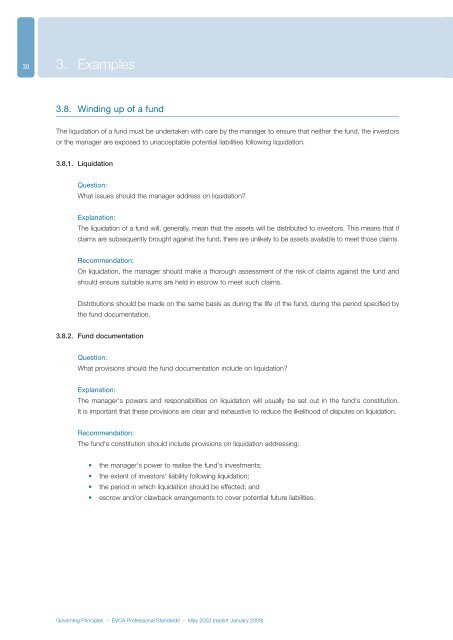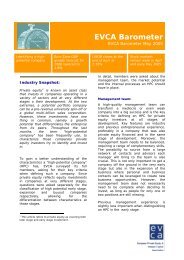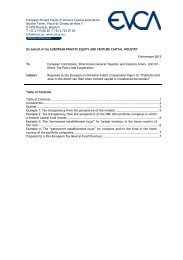EVCA Governing Principles
EVCA Governing Principles
EVCA Governing Principles
- No tags were found...
You also want an ePaper? Increase the reach of your titles
YUMPU automatically turns print PDFs into web optimized ePapers that Google loves.
303. Examples3.8. Winding up of a fundThe liquidation of a fund must be undertaken with care by the manager to ensure that neither the fund, the investorsor the manager are exposed to unacceptable potential liabilities following liquidation.3.8.1. LiquidationQuestion:What issues should the manager address on liquidation?Explanation:The liquidation of a fund will, generally, mean that the assets will be distributed to investors. This means that ifclaims are subsequently brought against the fund, there are unlikely to be assets available to meet those claims.Recommendation:On liquidation, the manager should make a thorough assessment of the risk of claims against the fund andshould ensure suitable sums are held in escrow to meet such claims.Distributions should be made on the same basis as during the life of the fund, during the period specified bythe fund documentation.3.8.2. Fund documentationQuestion:What provisions should the fund documentation include on liquidation?Explanation:The manager's powers and responsibilities on liquidation will usually be set out in the fund's constitution.It is important that these provisions are clear and exhaustive to reduce the likelihood of disputes on liquidation.Recommendation:The fund's constitution should include provisions on liquidation addressing:• the manager's power to realise the fund's investments;• the extent of investors' liability following liquidation;• the period in which liquidation should be effected; and• escrow and/or clawback arrangements to cover potential future liabilities.<strong>Governing</strong> <strong>Principles</strong> - <strong>EVCA</strong> Professional Standards - May 2003 (reprint January 2009)
















